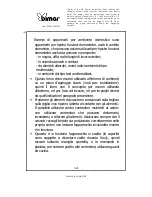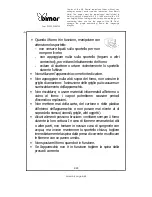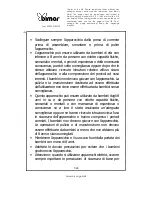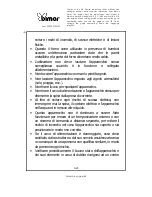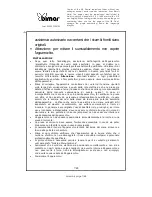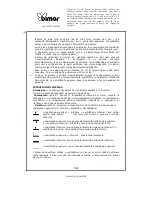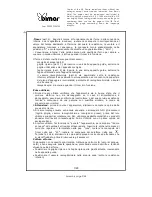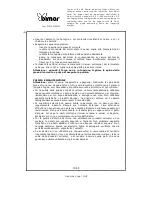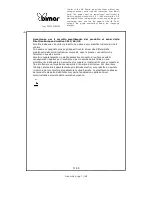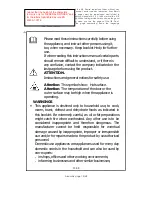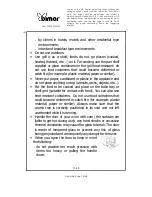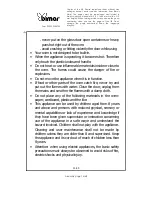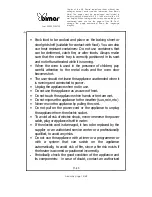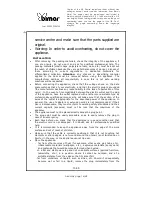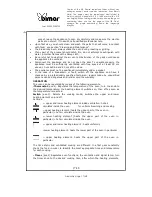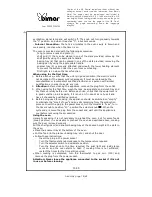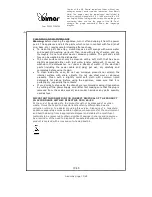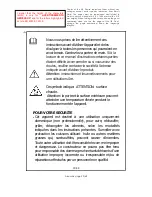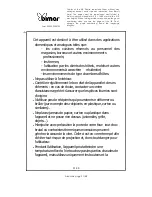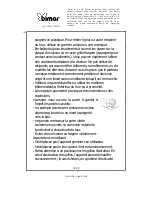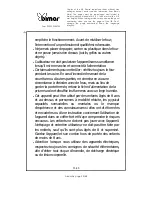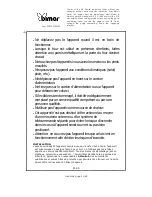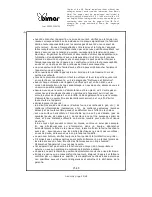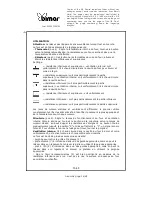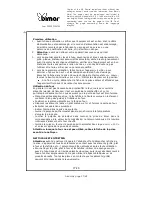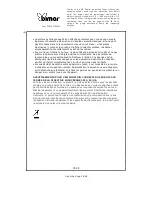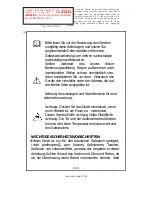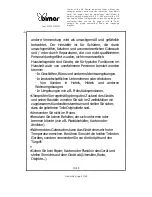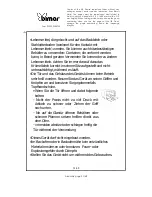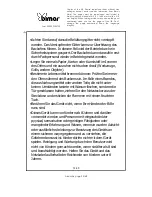
Copies of the I/B. Please reproduce them without any
changes except under special instruction from Bimar
(Italy). The pages must be reproduced and folded in
order to obtain a booklet A5 (+/- 148.5 mm width x 210
mm height). When folding, make sure you keep the good
numbering when you turn the pages of the I/B. Don’t
change the page numbering. Keep the language
integrity.
17
/
48
Assembly page 17/48
Fax +32 030 9904733
socket, leave the appliance to cool, dry carefully and make sure the electric
parts are not wet; if in doubt, call qualified professional help.
•
Upon first use, you should clean and wash the parts that will come in contact
with food: see section "Cleaning and Maintenance”.
•
The bread may burn, always check the oven during roasting or grilling.
•
If any part of the product should catch fire, do not attempt to extinguish with
water. Smother flames with a damp cloth.
•
Be careful not to obstruct the air vents. Obstruction of the grids could cause
the appliance to overheat.
•
Disconnect the appliance and do not open the door To operate properly, the
appliance must be sufficiently ventilated with free space of at least 35 cm
above, 10 cm behind and 20 cm at the sides.
•
The appliance must not be positioned immediately under a socket.
•
In the case of a breakdown or fault, switch off the appliance and have it
checked by a professionally qualified technician; repairs made by unqualified
persons can be dangerous and render void the warranty.
OPERATION
The oven can be regulated by means of the following elements:
-Thermostat
(pos.4). Regulates the temperature of the oven; turn the knob to
the desired temperature: the heating element switches on, then off as soon as
the temperature is reached.
Switch
(pos.3). Selects the cooking mode; switches the upper and lower
heating element on and off.
Settings:
= upper and lower heating element inside ventilation: hot air
circulates inside the oven for uniform browning and cooking
= upper heating element (heats the upper part of the oven in
part hot air circulates inside the oven
= lower heating element (heats the upper part of the oven in
part hot air circulates inside the oven
= upper and lower heating element : heats uniformly
=lower heating element: heats the lower part of the oven in particular
= upper heating element: heats the upper part of the oven in
particular
The time static and ventilated cooking are different: the first uses constantly
check the food in order to identify the most appropriate time and temperature
for each cooking.
- Timer
(pos.2) Regulates oven functions, the ventilation and signal lamp; turn
the timer knob to the desired cooking time, after which the heating elements,

